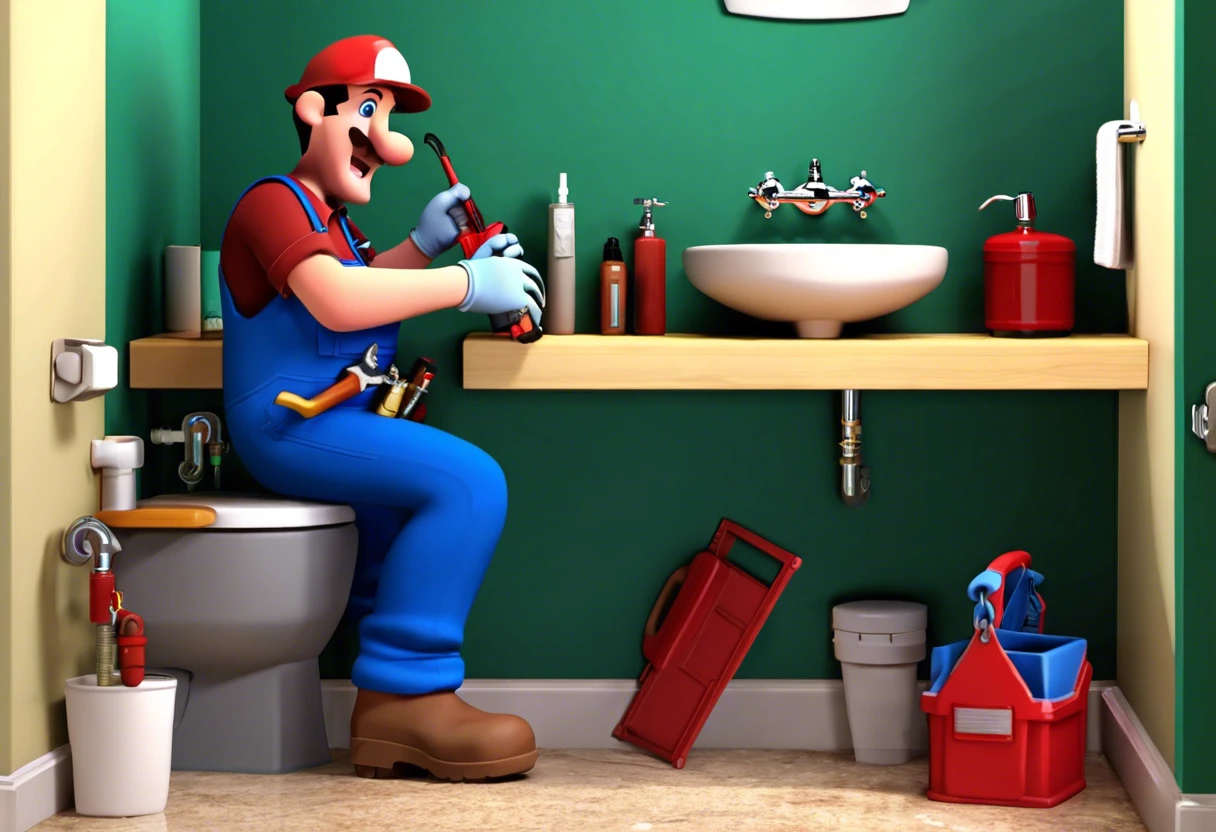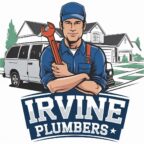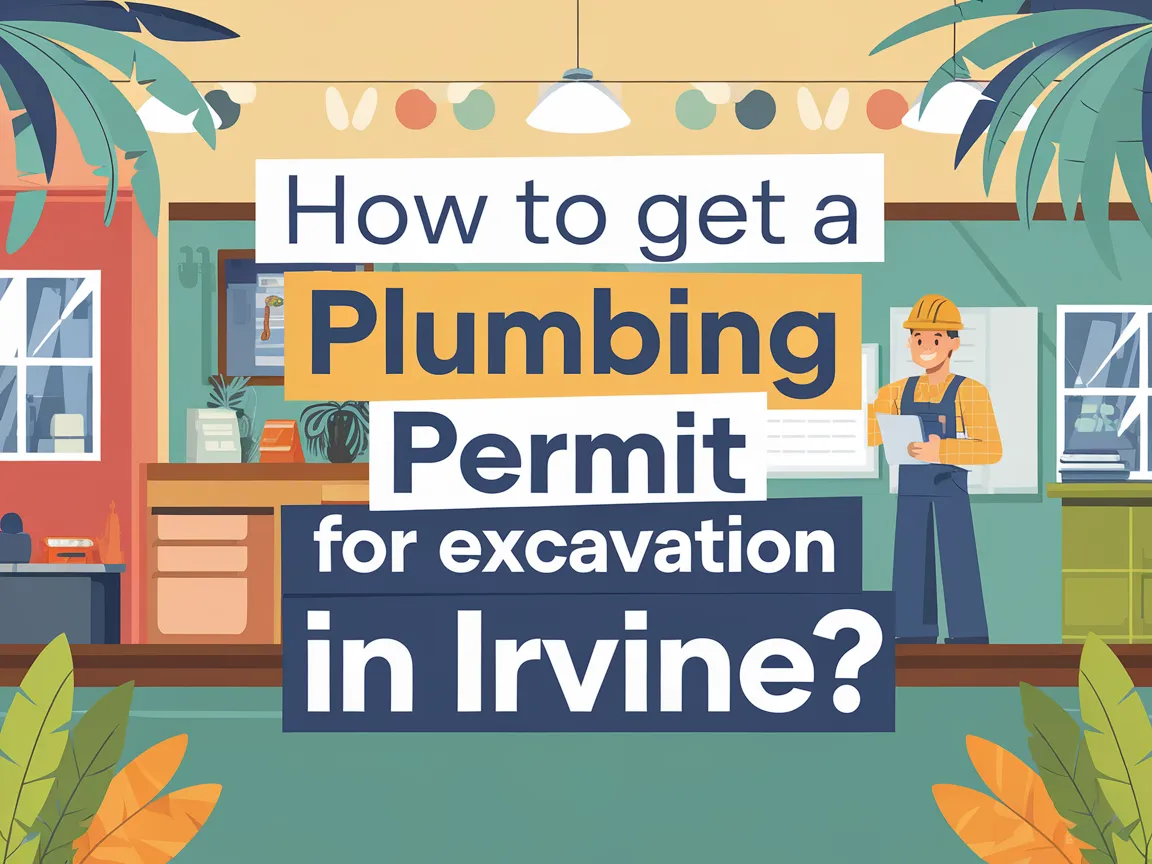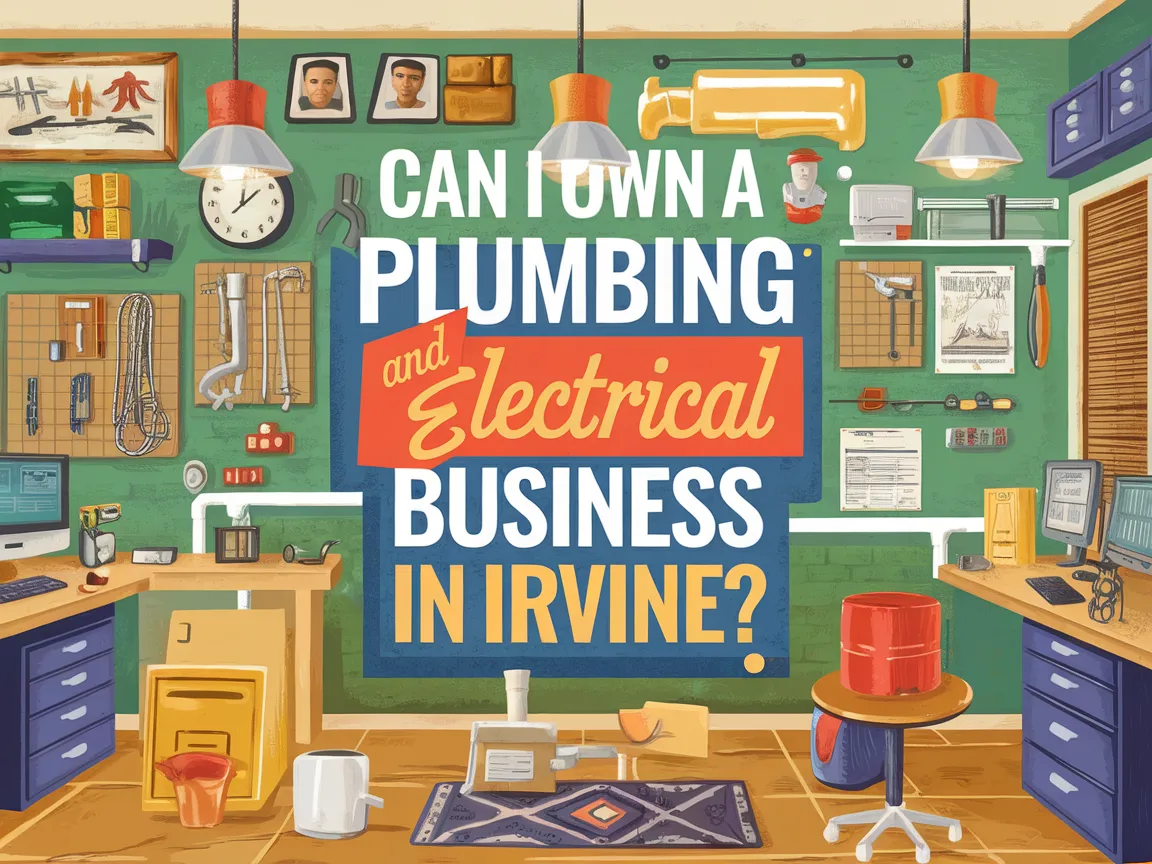Do You Need a Plumbing License?
Last Updated: February 27, 2025
A plumbing license is a special permission that lets someone do plumbing work. Think of it like a badge you get after learning how to fix pipes and faucets.
A common plumbing mystery I help solve is plumbing licensing requirements. With my firsthand experience as a plumber in Irvine, I understand how tricky this can be, and I’m here to guide you through it.
This article covers what a plumbing license is, key things to consider before starting, how to get a plumbing license, costs, factors that affect these costs, special considerations when applying, and when to seek expert help for plumbing licenses.
Table of Contents
- Do You Need a Plumbing License?
- What is a Plumbing License?
- Before You Start: Key Considerations for Aspiring Plumbers
- How to Obtain a Plumbing License
- How Much Does It Cost to Get a Plumbing License?
- What Factors Affect the Cost Of Obtaining a Plumbing License?
- Special Considerations When Applying for a Plumbing License
- When to Seek Expert Assistance for Plumbing Licenses
- Common Misconceptions About Plumbing Licenses
- Understanding the Importance of Plumbing Licensing
- Finding the Right Licensing Resources
- Future Trends in Plumbing Licensing
- You, the Unlikely Plumbing Hero Of Irvine
- Final Thoughts on Obtaining a Plumbing License
- Additional Resources
Do You Need a Plumbing License?
Yes, you need a plumbing license in California to perform any plumbing work for pay. This ensures you meet safety and code standards. If you’re considering DIY, small repairs might not need it, but contract work does. When selecting pipes for your home renovation, it’s crucial to know the most common residential plumbing materials.
What is a Plumbing License?
A plumbing license is an official certification that lets an individual legally perform plumbing work, like installing, repairing, and maintaining piping systems. In California, getting this license means meeting specific requirements, usually at least 4 years of hands-on experience in the field and passing a three-part exam that covers practical skills, plumbing knowledge, and legal topics. The importance of this license can’t be overstated; thousands of licensed plumbers protect public health and keep up with local building codes across the Golden State. Professionals often explore specialized techniques like VTR methods in plumbing to enhance their technical expertise.
I had a buddy who relied on his license for his small family business, serving homes right here in the OC. He fully understood the heavy regulations around “do you need a plumbing license?” especially when it comes to safety and quality of work for his clients. Speaking of which, remember the $PASF (Plumbing and Steam-fitting Apprentice Training Fund)? It’s crucial for upcoming plumbers who are serious about their careers—having funding like that can help them gain better skills in the trade and highlight the importance of having your professional plumbing credentials.
Before You Start: Key Considerations for Aspiring Plumbers
What do you need to do before getting a plumbing license?
- Plumbing Code Handbook: You need a comprehensive code handbook, such as the California Plumbing Code, for accurate guidelines on state requirements and regulations.
- Business Licenses: Depending on your role, you’ll also need municipal or county business licenses, like the Irvine City Business License, to legally perform plumbing work.
- Plumbing Tools: Essential tools, like the RIDGID 31150 pipe wrench—which is vital for gripping and turning pipe fittings—are necessary throughout your licensing journey.
- Insurance Policy: Having general liability insurance (Around $300-$1,000 a Year) is crucial, as it protects you from financial loss while you pursue your license.
- Training Program Registration: Signing up for an accredited apprenticeship program, like the one at local Irvine trade schools, sets you on the right course to gain essential experience and credibility.
We covered essential considerations for aspiring plumbers here. We will now cover how to obtain a plumbing license.
Also See: Do It Yourself Plumbing? Master Basics in Irvine!

How to Obtain a Plumbing License
Let’s break down what it takes to earn your plumbing license in the OC and beyond. Trust me, you’ll want to pay close attention!
-
Research Local Licensing Requirements
Start by checking the specific plumbing licensing rules in California. Just like in Irvine, where requirements can vary, you’ll want to dig into the details outlined by the California State Licensing Board (CSLB). If you’re wondering about the nuances of plumbing maintenance and responsibility, HOA plumbing coverage details can provide crucial insights into local regulations.
Knowing whether you need a residential or commercial license is crucial, as there are also irrigation licenses for landscape-related work. Dive into your local regulations because they differ from place to place.
-
Complete Required Training and Education
Enroll in an accredited plumbing program that offers at least a high school diploma, with an associate degree being ideal. Courses usually cover basic plumbing along with the necessary documentation of procedures in key areas like service plumbing. When designing complex piping systems, plumbers often rely on specialized reducer fittings for precise connections.
Look for programs well-regarded in SoCal, as varying degree durations can influence how quickly you can get your license. I’ve seen folks crush the competition after focusing on practical skills that really make a difference in the field.
-
Gain Relevant Work Experience
Secure an apprenticeship under a Certified Plumbing Contractor (CPC). The typical journey takes four to five years, which might sound long, but that hands-on experience can sharpen your knowledge way beyond just textbook theory. Professional plumbers often recommend exploring specific guidelines for municipal plumbing system requirements.
Skills develop on job sites in places like Woodbridge or Turtle Rock. From my experience, hands-on learning really boosts confidence and helps you visualize real-world plumbing practices.
-
Pass the Licensing Examination
Get ready for the state licensing test, which covers plumbing codes and regulations relevant to Irvine and Cali. You’ll dive into questions about drainage systems and sustainability rules tied to California’s strict environmental policies. If you’re wondering about specific responsibilities in rental properties, check out landlord plumbing responsibilities in Irvine.
Use study guides from various resources that familiarize you with the question formats. This builds your confidence because understanding potential code breaches will prepare you for challenges later on.
-
Apply for Your Plumbing License
Once you pass the exam, it’s time to fill out the application and pay the fees, which usually run around $200 (But Rates Can Change!). You can find everything you need on the CSLB’s website.
Be meticulous when submitting paperwork to streamline the process. There’s often a lot of back and forth, but keeping things organized can make a huge difference.
Pro Tip: Certifications really shine out here in Irvine! Connecting with local contacts can open doors, helping you leverage your skills and build a successful plumbing career right in the heart of the OC. If you’re curious about the financial aspects of starting your plumbing journey, check out the plumbing costs for new houses.
So far we covered the process for getting a plumbing license. Let’s look at the costs associated with obtaining one next.
How Much Does It Cost to Get a Plumbing License?
Getting your plumbing license can set you back anywhere from $300 to $2,000, depending on whether you’re a DIYer or going the pro route. Don’t forget surprise costs like study materials, test fees, and renewal expenses; I’ve seen folks spend an extra $500 without realizing it. From my experience, budgeting around $1,000 is a smart move because licensing can take several months, especially if you’re studying part-time while juggling work. When diving deeper into plumbing systems, you might want to explore specific technical components like understanding plumbing riser details.
Cost Breakdown
| Cost Item | Low Estimate ($) | High Estimate ($) |
|---|---|---|
| Application Fee | 100 | 500 |
| Study Materials | 50 | 200 |
| Exam Fees | 100 | 300 |
| Background Check | 50 | 150 |
| Insurance/Other Fees | 50 | 850 |
| Total Estimated Cost | 350 | 2,200 |
That covers the expenses associated with obtaining a plumbing license. Let’s now take a look at the factors influencing these costs.
What Factors Affect the Cost Of Obtaining a Plumbing License?
So, what factors contribute to needing a plumbing license for your work?
-
Location Regulations: Local laws often dictate who needs a plumbing license and the associated costs.
-
Type of Work: Restrictions on tasks performed without a license vary by job type, impacting your requirements.
-
Training and Experience: A higher level of training or journeyman status often increases the need for licensing.
-
Insurance Requirements: Some insurance providers require a valid plumbing license for coverage, influencing its necessity.
So far we covered the key factors impacting plumbing license costs. Let’s look at special considerations in the application process next.

Special Considerations When Applying for a Plumbing License
Let’s dive into the specific technical factors to keep in mind if you’re wondering whether you need a plumbing license.
- Water Efficiency Standards: California has strict regulations on water conservation. Make sure you’re familiar with the US EPA’s WaterSense program and your local Irvine laws regarding fixtures and systems.
- Drainage Calculations: Before applying, know how to calculate the required slope for drainpipes, which is typically 1/8 inch per foot (10 Mm Per 1 M) to ensure proper drainage and avoid clogs.
- Pipe Materials and Codes: Different regions may require specific pipe types, like PVC or PEX. In California, recognize the California Plumbing Code, which updates often, so keep tabs!
- Turtle Beach Fixtures Preferences: In line with OC conservation goals, some jurisdictions offer incentives for installing low-flow fixtures, so activate those options before going for your license.
- Seismic Safety Factors: Understanding seismic bracing standards is essential, particularly regarding gas lines and appliances to ensure they stand up during earthquake events.
When to Seek Expert Assistance for Plumbing Licenses
So, you’re asking yourself, “Do I need a plumbing license?” If you’ve got a plumbing project that seems daunting—like changing out your water heater or rerouting pipes—it’s time to call in the pros. You’ll want to find experts with valid licenses who know the local codes here in Irvine, CA, so you know they’re legit. Professional plumbers can help you navigate complex installation challenges and ensure your project meets all local plumbing regulations.
From personal experience, it’s best to look for a plumber with positive reviews, especially from homeowners in Costa Mesa or Tustin, since they often have similar plumbing quirks. Watch out for red flags too, like super low quotes or no visible licenses; those usually come back to bite you later.
If you’re curious about the professional journey behind skilled plumbing services, you might want to explore how plumbers develop their expertise.
Your home is your castle, and plumbing issues can make it messy sometimes, trust me! So, make sure to ask candidates about their insurance and warranties. You want peace of mind, knowing your work is done right the first time.
Common Misconceptions About Plumbing Licenses
Many folks have misconceptions when it comes to plumbing licenses and what’s required. Let’s clear things up!
- DIY Work Doesn’t Need a License: A common myth is that any small repair doesn’t need a license. However, if you’re charging someone for a service, it’s likely you need a license, even if it’s just a leaky faucet.
- All States Have the Same Rules: Some people think plumbing licenses work the same across the country. In reality, California has strict requirements and they can really differ from states like Texas or Florida.
- You Can’t Work Without a License Even for Family: It’s hella important to know that even helping friends or family can require a license if it’s on a contract basis. The line between DIY and professional can get blurry.
Understanding the Importance of Plumbing Licensing
Why is a plumbing license so crucial for professionals and homeowners alike? Let’s break it down.
- Legal Compliance: Having a plumbing license means you’re following local and state regulations, which protects both you and your clients from legal issues.
- Building Trust: Licensing builds trust with customers. When they see that you’ve got the certification, it boosts their confidence in your skills and expertise.
- Quality Assurance: Licensed plumbers have passed exams that test their knowledge of codes and regulations, ensuring that the work meets community standards.
- Insurance Benefits: Being licensed often means easier access to various insurance policies, which can save you money if something goes wrong on the job.
Finding the Right Licensing Resources
Looking for the best routes to obtain your plumbing license? Here are resources specific to California.
| Resource | Description | Website/Contact Info |
|---|---|---|
| California State Licensing Board (CSLB) | The primary governing body for plumbing licenses in California. | CSLB Website |
| Irvine Valley College Plumbing Program | An accredited program offering hands-on training and certification. | IVC Website |
| California Plumbing Code | A comprehensive guideline for plumbing standards in California. | |
| Local Trade Schools | Various trade schools throughout OC that offer plumbing courses. | Contact each school directly for details. |
Future Trends in Plumbing Licensing
As the plumbing landscape evolves, it’s essential to stay updated on future trends regarding licensing:
- Sustainability Regulations: Expect stricter rules around eco-friendly plumbing practices, especially with California’s focus on conservation.
- Advanced Technology Certification: As smart home devices become more popular, training in tech-savvy plumbing techniques may be required.
- Greater Emphasis on Continuing Education: Continuous learning could soon be necessary, keeping plumbers updated on the latest codes and techniques.
You, the Unlikely Plumbing Hero Of Irvine
Ever found yourself knee-deep in a plumbing conundrum, right here in Irvine, CA? Literally, it’s a whole journey! But don’t worry, I’ve been through it plenty of times.
Take that time when the OC heatwave dried up everything, and my showerhead felt like it was coughing rather than raining. It seemed like all the water decided to take a vacation right when I needed it most—classic, right?
Well, with some trusty tools and a bit of ‘Cali’ know-how, I took on the challenge. I mean, how hard could it be to fix a showerhead? Spoiler alert: it was way easier than I thought—just some straightforward unscrewing and replacing parts. As they say, “With any luck,” you’ll find it’s simpler than it seems.
But let’s be real for a sec. Sometimes, plumbing issues pop up that no amount of DIY will fix. If your sink is gurgling like it’s trying to communicate or your toilet won’t stop running, that’s a sign you might need to call a pro. Whether it’s clogged pipes or leak detection, sometimes you gotta know your limits.
You know what’s awesome about living in the OC? There’s a wealth of resources and pros right in your backyard. I’ve seen crazy plumbing issues caused by those beautiful trees we love. Roots can grow into pipes, and bam—you’ve got yourself a headache!
In my experience, staying proactive about plumbing can save you some serious cash. Regular maintenance checks, like clearing out your gutters or inspecting for leaks, can keep things flowing smoothly. And trust me, you don’t want to be the one stuck with a flooded garage!
If you’re ever stoked to try a DIY project, start small. Changing out a faucet or replacing a showerhead isn’t rocket science and usually takes just an hour or two. Just make sure you’ve got a few basic tools—like a wrench and some plumber’s tape—and you’ll feel like a champ.
But if you find yourself facing something big—they’re not all fun and games out there—don’t hesitate to reach out. I’m always here to guide the fellow Irvine homeowner through the wild world of plumbing! If you’re considering expanding your professional skills, you might want to explore owning a multi-trade business.
Final Thoughts on Obtaining a Plumbing License
That’s everything I wanted to share with you about whether you need a plumbing license. We covered topics such as what a plumbing license is, key considerations for aspiring plumbers, how to obtain that license, costs involved, factors affecting the cost, special considerations during the application, and when to seek expert assistance.
Ultimately, understanding these aspects clarifies the question of whether you need a plumbing license. If you require further assistance or professional advice, feel free to reach out for a discussion regarding your plumbing needs.
For additional insights and valuable resources, Irvine Plumbers offers a wealth of information on techniques, tips, and best practices.


